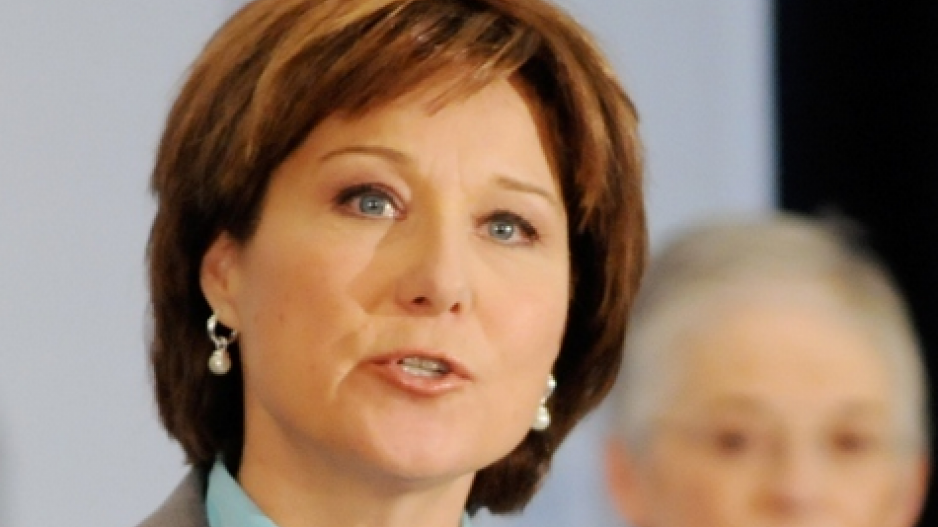Metro Vancouver mayors will have to win a referendum if they want to add a new funding source for TransLink, including any eventual imposition of road pricing, according to British Columbia Premier Christy Clark.
"I think it's the right thing to do to ask people," Clark said after mayors voted last week to urgently study road pricing options, which could someday replace the tolls on just some bridges with per kilometre fees to drive on all major routes.
"It would be a new funding source," Clark said, noting the province has been able to build schools and hospitals without creating new taxes.
More bridges are expected to be tolled after the Pattullo Bridge and Massey Tunnel are replaced.
When asked if those tolls would be subject to referendum, the premier was non-committal.
"We're going to have that discussion about that as those projects continue to go ahead," Clark said.
"But people have choices about whether or not they pay for that new source of funding. If it was a new sales tax, which was proposed in the last referendum, no one would have a choice about whether or not they would have paid for that."
Clark's comments follow calls last week for her to abandon the continued referendum requirement on grounds it will thwart transit expansion and effective regional planning.
Metro residents voted by a 62 per cent margin against a 0.5 per cent sales tax earlier this year.
Metro mayors have asked TransLink to study mobility pricing options and determine how such a system could be advanced as quickly as possible.
A report to the mayors said mobility pricing could cut congestion while generating new funding to expand transit.
It notes any move to road pricing should happen before the two new toll bridges are built on the Fraser River, otherwise it could be complex and costly to change deals with P3 bridge operators afterwards.
Despite the new urgency to pursue road pricing, mayors don't expect the options will be fully fleshed out for months if not years. Previous estimates have suggested such a system is five to eight years away.
Communities Minister Peter Fassbender, who has responsibility for TransLink, made it clear the referendum requirement also applies to any move to introduce an annual vehicle levy, which is enabled in TransLink legislation but considered a new tax by the province.
He also said a vehicle levy wouldn't be fair enough to the region's residents.
"People who live in apartments in downtown Vancouver who use transit and who are beneficiaries of the transportation system would not be contributing," Fassbender said. "It would only be people using and driving cars."
The only tax mayors could feasibly use to generate new revenue without a referendum is the one they don't want to use – property tax.
Fassbender suggested they relent on that and raise TransLink's dedicated property tax somewhat to improve bus service while work continues to find a solution to build their proposed major projects – light rail in Surrey, a Broadway SkyTrain extension and the new Pattullo Bridge.
"I believe it is a fair and equitable source of funding," Fassbender said of property tax. "Everybody shares who lives in the region, whether they own or rent, and even if they don't have a car and ride transit."
He said it's important to make some progress to realizing the mayors' plan, which he said was broadly supported in the region despite the referendum failure.
Surrey Mayor Linda Hepner, the mayors' council vice-chair, panned the idea of resorting to property tax.
"There are so many pressure points on local government finance, I don't think there's an appetite for property tax and I think every single mayor has made that fairly clear."
Hepner said no mayors want to go through another referendum but she defended the decision to research road pricing as necessary to determining if and how it might work here.




